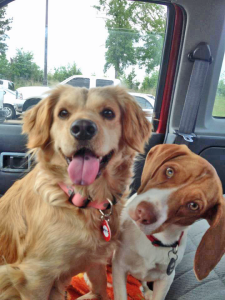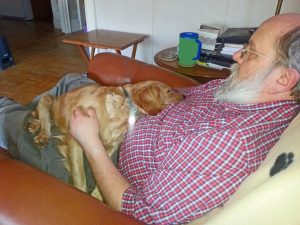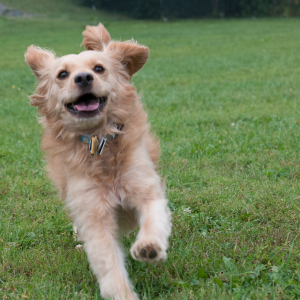< A version of this article was published in the July 2017 issue of Downeast Dog News>
< Updated 14SEP17 >
< UPDATED – 3SEP17 – All three parts of this series have been compiled into a single article at http://bit.ly/DoesDogBreedMatter >
 I recently saw a meme posted on Facebook with the words “Getting a dog without understanding the breed is like buying a house without an inspection.” A discussion followed as to whether or not this was a good way to emphasize that breed matters when you are selecting a dog that will best fit into your family, lifestyle, and the environment in which you and your dog will live. I agree with the sentiment of the text in this meme; however, I believe that the question of how important breed is when selecting a dog is far too important to leave to a discussion on Facebook. If you want the greatest probability of getting a great canine companion, you need to consider breed before purchasing or adopting a dog, and your research needs to extend beyond social media and
I recently saw a meme posted on Facebook with the words “Getting a dog without understanding the breed is like buying a house without an inspection.” A discussion followed as to whether or not this was a good way to emphasize that breed matters when you are selecting a dog that will best fit into your family, lifestyle, and the environment in which you and your dog will live. I agree with the sentiment of the text in this meme; however, I believe that the question of how important breed is when selecting a dog is far too important to leave to a discussion on Facebook. If you want the greatest probability of getting a great canine companion, you need to consider breed before purchasing or adopting a dog, and your research needs to extend beyond social media and  avid fans of the breed.
avid fans of the breed.
The American Kennel Club (AKC) currently recognizes 202 different breeds of dogs organized into seven groups: Herding, Hound, Non-Sporting, Sporting, Terrier, Toy, and Working. Different breeds of dogs exist because each breed was developed to address a particular need or role in serving humans.
In some cases, the AKC group description is helpful in understanding what a dog was bred to do, while some of the groups contain breeds with a wide variety of individual physical and behavioral traits and I question how they were lumped into the same group. However, looking at the Group is a good place to start. Below you will find my thoughts on each AKC group and factors that I recommend you consider before deciding which breed is the best for you. Please recognize that you want to choose a breed that is also the best choice for your family, your lifestyle, and the environment in which you live. The lifespan of a dog, which can also be breed dependent, can range from six to eighteen years. As you consider your current lifestyle and environment, think about the future and what your life will be like when your dog is older. Adding children to your life or moving from a rural to an urban environment should be considered when you choose your breed.
FMI – http://bit.ly/FindingTheRightDogForYou
Herding Group – “All breeds share the fabulous ability to control the movement of other animals. …pure instinct prompts many of these dogs to gently herd their owners, especially the children of the family.1”
 The most popular of the breeds in the Herding group is the German Shepherd Dog, which has been second on the AKC’s list of Most Popular Dog Breeds for the past four years2. Other dogs in this group include Australian Shepherds (#16), Corgis (#18, #69), Shetland Sheepdogs (#24), Collies (#37), Border Collies (#38), and more.
The most popular of the breeds in the Herding group is the German Shepherd Dog, which has been second on the AKC’s list of Most Popular Dog Breeds for the past four years2. Other dogs in this group include Australian Shepherds (#16), Corgis (#18, #69), Shetland Sheepdogs (#24), Collies (#37), Border Collies (#38), and more.
I describe many dogs in the herding group as “Those with a passion for bringing order out of chaos.” Often the dogs in this group need to herd and will attempt to round-up everything from your livestock, to ducks at the park, your cats, other dogs, the neighbor’s children, and yes, even stationary tennis balls. Some breeds herd with their eyes while others use quick, but effective and often uncomfortable nips with their teeth. If you live in a chaotic household and have children nearby, you should carefully consider if a dog from the herding group is a good choice for your situation. On a positive note, the dogs in the herding group have been bred to work in close collaboration with a person so they can be easier to train.
Hound Group – “Most hounds share the common ancestral trait of being used for hunting. Some use acute scenting powers to follow a trail. Others demonstrate a phenomenal gift of stamina as they relentlessly run down quarry.1”
The favorite breed in the Hound group is the Beagle, which has been the fifth  most popular dog in the USA since 20152. Other dogs in the Hound group include Dachshunds (#13), Bassett Hounds (#39), Bloodhounds (#52), Greyhounds (#151), and more.
most popular dog in the USA since 20152. Other dogs in the Hound group include Dachshunds (#13), Bassett Hounds (#39), Bloodhounds (#52), Greyhounds (#151), and more.
The key thing to remember about the AKC’s comments on the Hound group is that hounds were bred to hunt by selectively breeding them to emphasize their predatory instincts. Some hounds use their sight, and some use their impressive sense of smell, but they are both experts at detecting and chasing down prey. Since hounds often work independently of their handler, unlike the breeds in the Herding and Sporting group, a hound may be more challenging to train. While it is not impossible to train a hound to be off-leash in unfenced areas, it will typically take more time and higher value rewards. Some hounds will never reach off-leash reliability no matter how skilled you are at training. Because many of the hound breeds have been bred to work as a group, they can have excellent social skills and will often do well with other dogs.
FMI – http://bit.ly/ChoosingADogTrainer
Many dogs in shelters are labeled as being part hound, and we see a wide variety of them for both boarding and daycare. If you put the time and effort into training your hound and have reasonable expectations, they can make excellent, laid back companions. Yes, I said laid back. I cannot think of any hound I have met that I would classify as hyper.
Some would argue that future behavior is all about the environment and the way a dog is raised. Environment certainly plays a tremendous role in a dog’s temperament but so do genetics, and we cannot change genetics. If you want the best possible companion that meets your criteria of “the perfect dog,” then spend some time researching the breeds before you get your dog.
Next month I will discuss the Non-Sporting, Sporting, Terrier, and Toy groups.
References
1 AKC website – http://www.akc.org/public-education/resources/dog-breeds-sorted-groups/
2 Most Popular Dog Breeds – Full Ranking List – http://www.akc.org/content/news/articles/most-popular-dog-breeds-full-ranking-list/
Recommended Resources
Articles on Don’s Blog (http://www.words-woofs-meows.com)
Does My Dogs Breed Matter? – Part 2 – http://blog.greenacreskennel.com/2017/08/02/does-my-dogs-breed-matter-part-2-the-sporting-non-sporting-terrier-and-toy-groups/
Does My Dogs Breed Matter? – Part 3 – http://blog.greenacreskennel.com/2017/09/01/does-my-dogs-breed-matter-part-3-the-working-group-and-mixed-breeds/
Finding the Right Dog for You and Your Family – http://bit.ly/FindingTheRightDogForYou
How to choose a dog trainer – http://bit.ly/ChoosingADogTrainer
________________________________________________________________________
Don Hanson is the co-owner of the Green Acres Kennel Shop (greenacreskennel.com) in Bangor. He is a Bach Foundation Registered Animal Practitioner (BFRAP), Certified Dog Behavior Consultant (CDBC), Associate Certified Cat Behavior Consultant (ACCBC) and a Certified Professional Dog Trainer (CPDT-KA). He produces and co- hosts a weekly radio show and podcast, The Woof Meow Show heard on The Pulse AM620 WZON and streamed at http://www.wzonradio.com/ every Saturday at 9 AM. A list of upcoming shows and podcasts of past shows can be found at www.woofmeowshow.com. Don also writes about pets at his blog: www.words-woofs-meows.com.
©29JUL17, Donald J. Hanson, All Rights Reserved
< Click for Copyright and Use Policy >








